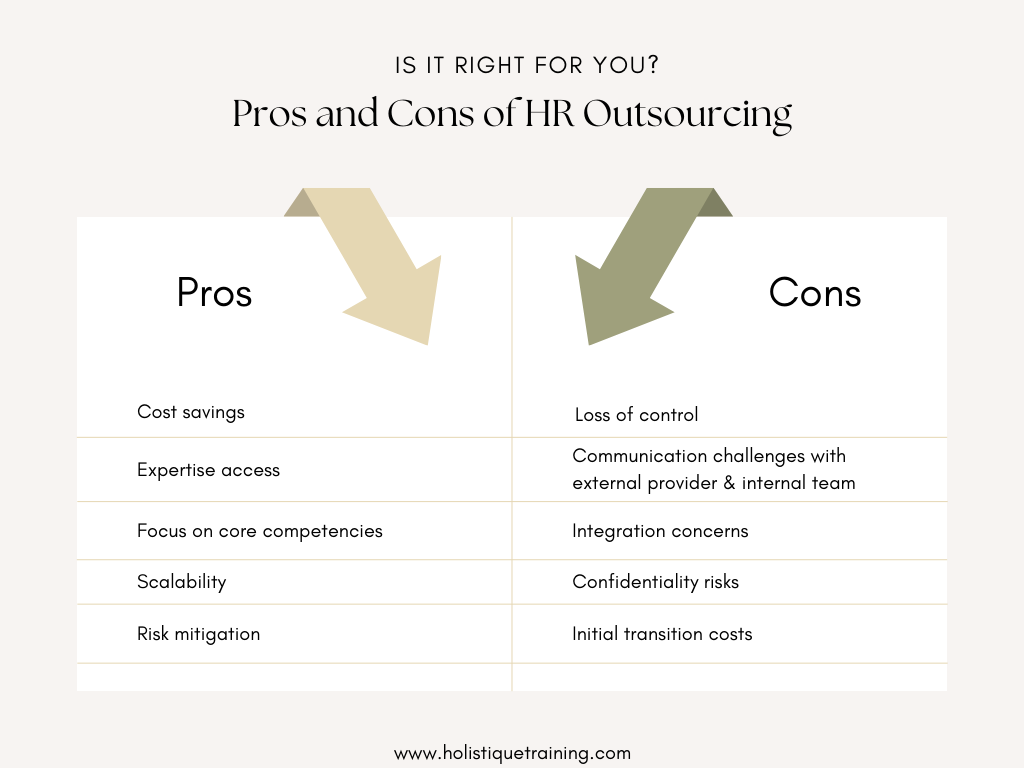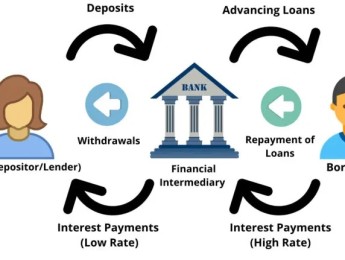Introduction
Navigating the complexities of human resources (HR) management can be a daunting task for businesses of all sizes. As companies strive to streamline operations and focus on their core competencies, HR outsourcing has emerged as a strategic solution. In this guide, we will delve into the intricacies of HR outsourcing, exploring its meaning, various options, pros and cons, and how businesses can seamlessly transition from in-house HR to outsourcing.
What Does HR Outsourcing Mean?
HR outsourcing involves entrusting specific HR functions to external service providers. This strategic business move allows organisations to delegate non-core activities, enabling them to concentrate on their primary objectives. HR outsourcing is not a one-size-fits-all solution; instead, it provides flexibility in choosing the extent of outsourcing based on organisational needs.
What Are My Options for Outsourcing HR?
When considering HR outsourcing, businesses have several options to choose from, each catering to different needs and preferences.
Administrative Services Outsourcing (ASO)
ASO represents an entry point into HR outsourcing, focusing on the delegation of administrative tasks. These tasks typically encompass payroll processing, benefits administration, and compliance management. The ASO model allows organisations to maintain a high degree of control over strategic HR decisions while outsourcing routine operational functions.
In choosing ASO, companies can benefit from specialised expertise without relinquishing overarching control. The flexibility of this model makes it particularly attractive for businesses seeking targeted support in specific HR areas while preserving a hands-on approach to strategic decision-making.
Human Resources Outsourcing (HRO)
For organisations looking to outsource a broader spectrum of HR functions, Human Resources Outsourcing (HRO) emerges as a comprehensive solution. HRO providers take on both administrative and strategic HR responsibilities, offering a more holistic approach to workforce management.
With HRO, businesses gain access to a broader range of services, including talent acquisition, performance management, employee development, and compliance. This model is well-suited for companies seeking a more integrated and outsourced approach to HR, allowing them to concentrate on core business functions without compromising on the quality of HR services.
Professional Employer Organisations (PEO)
Professional Employer Organisations (PEOs) go beyond HR outsourcing, often entering into a co-employment relationship with client businesses. In this arrangement, the PEO becomes a co-employer, sharing employer responsibilities such as payroll, benefits administration, and compliance.
PEOs offer advantages such as economies of scale, as they can negotiate better rates for employee benefits and streamline administrative processes. This model is particularly beneficial for small to medium-sized businesses looking to enhance their overall HR capabilities without incurring the full burden of employer responsibilities.
Staffing Companies
Staffing companies specialise in talent acquisition and management, providing businesses with a flexible and scalable solution for their workforce needs. Organisations can outsource various aspects of the recruitment process, from candidate sourcing and screening to onboarding and workforce management.
Choosing a staffing company allows businesses to tap into the expertise of recruitment professionals, ensuring a more efficient and effective hiring process. This model is advantageous for companies with fluctuating staffing needs, providing them with the ability to scale their workforce up or down as required.
Independent Contractors
In certain situations, businesses may opt to outsource specific HR projects or tasks to independent contractors. These contractors, often HR consultants, bring specialised skills and knowledge to address specific challenges or initiatives.
Independent contractors offer flexibility and cost-effectiveness, allowing organisations to access expertise without the need for a long-term commitment. This option is well-suited for businesses with short-term HR needs, such as policy development, training programmes, or compliance audits.
Choosing the most suitable HR outsourcing option depends on various factors, including the organisation's size, industry, and specific HR requirements. By carefully evaluating these options, businesses can tailor their approach to align with their strategic objectives and enhance overall workforce management efficiency.
Pros of HR Outsourcing
Statistics mentioned by ZipDo indicate that a majority of companies, specifically 80%, choose to delegate at least one of their HR functions to external service providers. But why is that? Let’s find out by delving into the advantages of HR outsourcing:
1. Cost Savings
One of the most compelling advantages of HR outsourcing is the potential for significant cost savings. Managing an in-house HR team incurs expenses related to recruitment, training, salaries, and benefits. By outsourcing HR functions, businesses can convert fixed costs into variable costs, paying only for the services they need. This allows organisations to allocate resources more efficiently and redirect funds toward core business activities.
2. Expertise Access
HR outsourcing brings a wealth of specialised knowledge and experience to the table. External providers often have a team of seasoned professionals well-versed in the intricacies of human resources, including legal compliance, benefits administration, talent management, and, according to microsourcing, the most outsourced HR functions include recruitment and employee training as well. This expertise ensures that HR functions are executed with precision and in accordance with the latest industry regulations, reducing the risk of costly errors.
3. Focus on Core Competencies
Outsourcing HR functions enables businesses to refocus on their core competencies. Instead of grappling with the complexities of HR management, organisations can channel their energy, time, and resources into innovation, strategic planning, and other activities that directly contribute to their competitive advantage. This shift in focus enhances overall business efficiency and effectiveness.
4. Scalability
The scalability of HR outsourcing is a strategic boon for businesses facing fluctuating workforce demands. As companies grow or contract, the ability to easily adjust the scope of HR services becomes invaluable. Outsourcing providers can adapt to changing needs, ensuring that businesses have the flexibility required to navigate dynamic market conditions without the constraints of a fixed in-house HR structure.
5. Risk Mitigation
Navigating the ever-evolving landscape of labour laws and regulations can be a daunting task. HR outsourcing providers specialise in staying abreast of these changes, reducing the risk of legal issues and non-compliance for businesses. By entrusting HR functions to experts, organisations can rest assured that they are operating within the bounds of the law, avoiding penalties and reputational damage.
These advantages collectively contribute to creating a more agile, cost-effective, and strategically focused organisation. HR outsourcing empowers businesses to navigate the complexities of workforce management with precision and efficiency, positioning them for sustained growth and success in a competitive business environment.
Cons of HR Outsourcing
While HR outsourcing offers numerous benefits, it is essential for businesses to carefully consider potential drawbacks before making the decision to delegate HR functions to external providers.
1. Loss of Control
One of the primary concerns associated with HR outsourcing is the perceived loss of control over critical aspects of workforce management. When externalising HR functions, businesses may find themselves in a position where they have less direct oversight and influence on day-to-day operations. This can lead to a sense of detachment from crucial HR processes, potentially affecting decision-making and strategic alignment.
2. Communication Challenges
Effective communication is paramount in HR management, and outsourcing introduces an additional layer that can lead to communication challenges. The physical separation between the external provider and the internal team may result in misunderstandings, delays in issue resolution, and a potential disconnect between the outsourced functions and the broader organisational strategy.
3. Integration Concerns
Maintaining a cohesive and integrated approach to HR can be challenging when outsourcing. Aligning external HR functions with the organisation's culture, values, and specific requirements demands active collaboration. Ensuring that the outsourced provider understands and reflects the company's ethos is crucial for a harmonious integration that doesn't compromise the overall organisational identity.

4. Confidentiality Risks
HR outsourcing involves sharing sensitive employee information with external entities, raising concerns about data security and confidentiality. Businesses must carefully vet outsourcing partners to ensure they have robust security measures in place to protect sensitive data. Failure to do so may result in reputational damage, legal complications, and potential breaches of confidentiality.
5. Initial Transition Costs
While HR outsourcing promises long-term cost savings, the initial transition period can be associated with upfront costs. Implementing new systems, training employees on the outsourced processes, and negotiating contractual agreements all require an initial investment. Businesses must carefully weigh these transitional costs against the long-term benefits to ensure the overall financial viability of outsourcing.
Understanding these potential drawbacks is crucial for businesses considering HR outsourcing. Mitigating these challenges requires careful planning, open communication with the outsourcing partner, and a commitment to maintaining a strong organisational identity and control over critical HR processes. By proactively addressing these concerns, businesses can maximise the benefits of HR outsourcing while minimising potential drawbacks.
Who Should Outsource HR Functions?
Deciding whether to outsource HR functions depends on various factors, including the size of the organisation, its strategic priorities, and the complexity of HR requirements.
Small and Medium-sized Enterprises (SMEs)
Small and medium-sized enterprises often operate with limited resources and may not have the capacity to maintain a dedicated, in-house HR team. For these businesses, outsourcing HR functions provides a cost-effective solution. In fact, statistics show that approximately 24% of small businesses are estimated to engage in outsourcing HR services. By leveraging the expertise of external providers, SMEs can access professional HR services without the financial burden of hiring and training an internal HR staff. This allows them to remain agile and focus on their core business operations.
Rapidly Growing Companies
Businesses experiencing rapid growth face unique HR challenges. The demand for talent acquisition, onboarding, and compliance management increases exponentially. In such scenarios, outsourcing HR functions becomes a strategic move to manage the growing workforce efficiently. External providers can scale their services to accommodate the changing needs of a rapidly expanding organisation, ensuring that HR processes keep pace with the evolving demands.
Organisations Seeking Specialised Expertise
Certain HR functions require specialised knowledge and expertise. Businesses operating in highly regulated industries, facing complex legal compliance issues, or undergoing specific HR projects can benefit from outsourcing to experts in those areas. External providers bring a depth of experience and understanding, ensuring that organisations remain in compliance with industry regulations and effectively navigate intricate HR challenges.
Companies with Fluctuating Workforce Needs
For businesses with fluctuating staffing requirements, such as seasonal variations or project-based work, outsourcing HR functions offers flexibility. Staffing needs can change rapidly, and external providers, especially staffing companies, specialise in managing dynamic workforce demands. This flexibility enables organisations to scale their workforce up or down without the challenges associated with maintaining a constant in-house HR team.
Global Businesses
Companies with a global footprint face unique HR challenges, including navigating different labour laws, cultural nuances, and compliance requirements in various regions. HR outsourcing can provide global businesses with a standardised approach to HR management while also accommodating local regulations. This ensures consistency in HR processes across different locations, streamlining operations and promoting a cohesive organisational culture.
Organisations Emphasising Cost Efficiency
For businesses prioritising cost efficiency, HR outsourcing can be a strategic tool. By converting fixed HR costs into variable costs, organisations can optimise their budget allocation. This is particularly relevant for businesses looking to maintain financial flexibility and allocate resources strategically to areas that directly contribute to their core business objectives.
Companies Embracing Technological Advancements
The integration of technology in HR processes is becoming increasingly vital. Businesses that embrace technological advancements can benefit from HR outsourcing providers that leverage modern HR management systems and tools. This ensures streamlined processes, real-time data access, and enhanced overall efficiency in HR operations.
In summary, HR outsourcing is not a one-size-fits-all solution. The decision to outsource HR functions depends on the unique characteristics and goals of each organisation. Whether a small business looking to save costs, a rapidly growing company managing expansion, or a global enterprise navigating diverse regulatory environments, businesses can strategically leverage HR outsourcing to enhance their overall efficiency and effectiveness. Careful consideration of specific needs and objectives is key to determining if HR outsourcing aligns with the broader goals of the organisation.
How to Transition from In-House HR to Outsourced HR
Successfully transitioning from in-house HR to outsourced HR requires careful planning and execution. Here are key steps to facilitate a smooth transition:
1. Conduct a Comprehensive HR Audit
Before embarking on the transition, conduct a thorough audit of your current HR functions. Identify areas that can be outsourced without compromising strategic decision-making. Evaluate the efficiency of existing processes, pinpoint pain points, and determine the specific functions that an outsourcing partner can address. This audit serves as the foundation for a well-informed transition plan.
2. Set Clear Objectives and Expectations
Define the objectives and expectations of outsourcing your HR functions. Clearly communicate these goals to both internal stakeholders and the outsourcing provider. Establish key performance indicators (KPIs) that align with your business objectives, allowing for measurable outcomes and accountability. This transparency helps create a shared understanding of the desired outcomes and fosters a collaborative partnership.
3. Choose the Right Outsourcing Model
Selecting the appropriate outsourcing model is crucial to a successful transition. Depending on your organisation's needs, you may opt for Administrative Services Outsourcing (ASO) for targeted administrative support, Human Resources Outsourcing (HRO) for a more comprehensive solution, or Professional Employer Organisations (PEO) for co-employment. Carefully assess the strengths and limitations of each model to align with your business structure and objectives.
4. Develop a Transition Plan
Create a detailed transition plan that outlines the timeline, responsibilities, and milestones of the outsourcing process. Clearly define roles within your organisation and the outsourcing provider, specifying who will be responsible for each aspect of the transition. Address potential challenges and develop contingency plans to mitigate risks. A well-structured plan ensures a smooth and controlled migration of HR functions.
5. Communicate Effectively with Employees
Transparent communication is critical during the transition to outsourcing. Clearly communicate the reasons for the change, the benefits it brings, and how it aligns with the organisation's overall strategy. Address any concerns employees may have about job security or changes in HR processes. Engage employees in the transition process by providing updates and soliciting feedback. An informed and engaged workforce is essential for a successful transition.
6. Establish Key Performance Indicators (KPIs)
Define KPIs to measure the success of the outsourcing arrangement. These metrics should align with your organisation's overall goals and objectives. Regularly evaluate performance against these KPIs and use the data to make informed decisions. Continuous monitoring ensures that the outsourcing partner is delivering the expected results and allows for adjustments if needed.
7. Employee Training and Support
Provide adequate training to internal staff to adapt to the new HR processes facilitated by the outsourcing partner. Ensure that employees understand how their roles may change and what to expect during the transition. The outsourcing provider should also offer support and training to ensure a smooth handover of responsibilities. This collaborative approach fosters a positive work environment and minimises disruption.
8. Evaluate and Adjust
Regularly evaluate the effectiveness of the outsourced HR functions and be prepared to make adjustments. Solicit feedback from internal stakeholders and the outsourcing provider to identify areas for improvement. Flexibility is key to adapting to evolving business needs, and an iterative approach allows for continuous optimisation of the outsourcing arrangement.
By following these steps, businesses can navigate the transition from in-house HR to outsourced HR with precision and foresight. A well-managed transition not only ensures the successful integration of external services but also sets the stage for a long-term, collaborative partnership that adds significant value to the organisation.
What to Look for in an Outsourcing Partner
Selecting the right outsourcing partner for your HR functions is a critical decision that directly influences the success of the arrangement. To ensure a fruitful and harmonious collaboration, businesses should carefully assess potential outsourcing organisations based on several key factors:
a. Industry Experience
Look for an outsourcing partner with experience in your specific industry. Understanding the nuances of your business sector allows the outsourcing provider to tailor their services to meet industry-specific HR challenges. A partner with industry expertise is better equipped to navigate regulatory requirements, understand workforce dynamics, and offer insights specific to your business context.
b. Reputation and References
Research the reputation of potential outsourcing partners. Seek references from their existing clients to gain insights into their performance, reliability, and overall satisfaction. Positive testimonials and case studies provide valuable perspectives on the outsourcing partner's capabilities and their ability to deliver on promises. A reputable partner is more likely to contribute positively to your organisation's success.
c. Technology Capabilities
Evaluate the technology infrastructure of the outsourcing organisation. A modern and robust HR management system is crucial for streamlined processes and efficient service delivery. Ensure that the outsourcing partner employs state-of-the-art tools and technologies to manage HR functions effectively. Compatibility with your organisation's existing systems is also essential to facilitate seamless integration.
d. Compliance and Security Measures
Given the sensitive nature of HR data, prioritise outsourcing partners with robust security measures and a strong commitment to compliance. Verify that the provider adheres to data protection regulations and industry standards. A partner with a proactive approach to security and compliance minimises the risk of data breaches, legal complications, and reputational damage for your organisation.
e. Scalability and Flexibility
Choose an outsourcing partner that can scale its services based on your business needs. The ability to adapt to changes in your workforce size or structure ensures flexibility and responsiveness. A scalable partner can accommodate growth, seasonal variations, and unforeseen circumstances, providing your organisation with the agility needed to navigate dynamic business environments.
Table 1: Factors affecting choosing the right outsourcing partner
Key Factor | Description | Impact on Outsourcing Partnership |
Industry Experience | Tailors services to specific industry challenges | Ensures a nuanced understanding of sector dynamics. |
Technology Capabilities | Modern HR management system enhances operational efficiency | Streamlines processes, provides real-time data. |
Cultural Alignment | Shared values and work culture foster collaboration | Enhances communication, strengthens working relationships. |
Service Level Agreements | Clearly defined SLAs ensure transparency and accountability | Establishes expectations, facilitates performance measurement. |
Financial Stability | Financially stable partner ensures reliability and sustainability | Minimises the risk of disruptions to outsourced functions. |
f. Cultural Alignment
Cultural alignment is crucial for a seamless integration of outsourced HR functions. Assess whether the outsourcing partner's values, work culture, and communication style align with those of your organisation. A shared understanding of cultural nuances fosters effective collaboration, enhances communication, and contributes to a positive working relationship between internal and external teams.
g. Service Level Agreements (SLAs) and Performance Metrics
Clearly define service level agreements (SLAs) and establish performance metrics to measure the outsourcing partner's effectiveness. SLAs should outline the scope of services, response times, and quality standards. Performance metrics should be tied to key objectives and expectations. Regularly review these metrics to ensure that the outsourcing partner is meeting or exceeding agreed-upon benchmarks.
h. Financial Stability
Evaluate the financial stability of the outsourcing organisation. A financially stable partner is more likely to invest in its infrastructure, technology, and talent, ensuring a reliable and sustainable service delivery. Request financial reports, assess the partner's growth trajectory, and inquire about their long-term stability to mitigate the risk of disruptions to your outsourced HR functions.
i. Communication and Collaboration Capabilities
Effective communication is essential for a successful outsourcing relationship. Assess the outsourcing partner's communication and collaboration capabilities. Ensure that they provide transparent and regular updates, maintain open lines of communication, and offer a collaborative approach to problem-solving. A responsive and communicative partner contributes to a positive and productive working relationship.
By carefully considering these factors, businesses can make informed decisions when selecting an outsourcing partner for their HR functions. The right partner contributes not only to the efficiency of HR operations but also to the overall success and growth of the organisation. Thorough due diligence ensures that the outsourcing relationship is built on a solid foundation, fostering a collaborative and mutually beneficial partnership.
Conclusion
HR outsourcing can be a strategic enabler for businesses looking to optimise their operations and focus on core competencies. By understanding the various options, weighing the pros and cons, and carefully transitioning from in-house to outsourced HR, organisations can unlock the full potential of this transformative business strategy. Choosing the right outsourcing partner involves thorough research and consideration of key factors, ensuring a harmonious collaboration that contributes to long-term success.
























